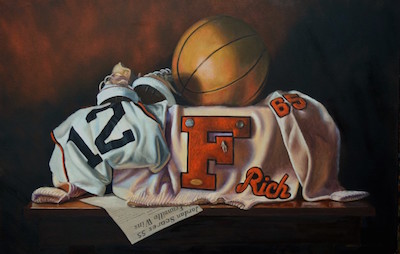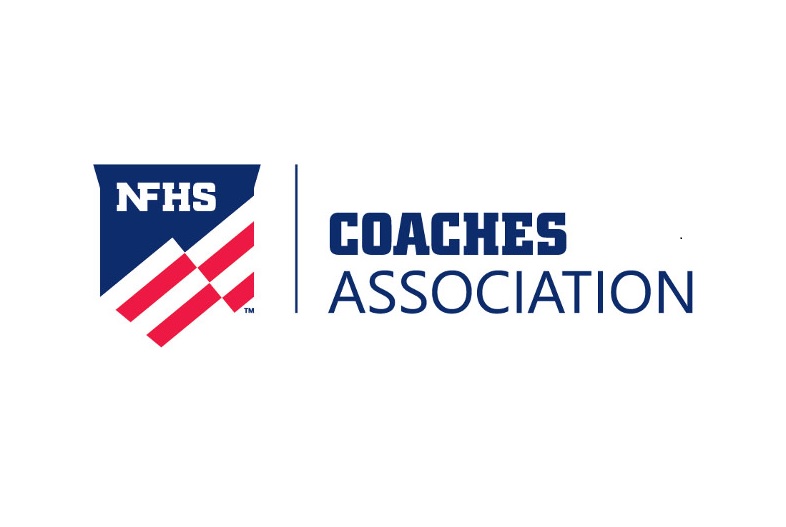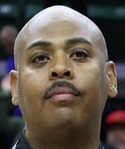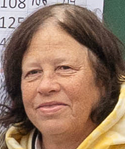
Film Fills In Picture of 'Fennville Flash'
By
Ron Pesch
MHSAA historian
December 28, 2017
We’ve been here before, but not in this way.
The last time was for a retrospective, covering one of the most impressive and awe-inspiring prep careers in Michigan high school history. That time was in print, and included a handful of still images that tried to illustrate the unbelievable.
But this time, the story is in documentary form. It’s woven together from grainy, scratched, faded silent film, a format of capturing memories familiar to thousands of people from generations past, as well as a series of modern-day high-resolution interviews.
Here, the basketball life of the athlete known as the “Fennville Flash” delivers on many levels. Yes, there is a Richie Jordan.
JordanVille, a documentary by John Mooy & Anne Colton, recalls a time when legend spread via word of mouth, newsprint and AM radio.
While it’s hard to comprehend for many today, the exploits of our athletic heroes were formed by “poets in the press box” who sat with pencil and paper, a typewriter, a microphone or a telephone, and described to their audience what they witnessed. On the receiving end, readers and listeners conjured up visualizations based on the facts, phrases and superlatives designed to create an image.
“Traveling left to right on your radio dial” helped listeners feel they were a member of the crowd, seated in the stands, in on the action and a witness to the mayhem. “Packed to the rafters,” reminded fans the importance of what was happening. An exciting game, presented by those with skill, created an event you longed to see. If a broadcast couldn’t be picked up on a transistor or tube radio, the final result might not be known, at the earliest, until the following day’s newspaper arrived.
I’ve told Jordan’s story via the MHSAA before; how he latched on to athletic training, weights and repetition to mold himself into a well-rounded athlete, able to leap to heights unexpected for a kid with a 5-foot-7 frame. The tales of his unfathomable accomplishments slowly leaked beyond the city limits of Fennville into Kalamazoo and greater Southwestern Michigan, then to Detroit. When Detroit Free Press writer Hal Schram relayed Jordan’s feats, the secret traveled across the state and beyond its drawn borders.
From there the legend of Jordan’s accomplishments grew. In Fennville, as in many small towns across the country, the city shut down when a game was played. The Jordan story was so enticing that thousands would travel vast distances to see him play with their own eyes. Today, his single season scoring average of 44.4 points per game during the 1964-65 campaign still remains the top mark in the MHSAA record book.
 JordanVille runs just shy of a half hour. Contained within is insight into the athlete that is challenging to relay in print form. Thanks to access to home movies and a series of interviews with Jordan, former teammates, past opponents and his high school coach, the determination, dedication and drive of a kid who wouldn’t let physical size be a deterrent from achievement radiates from the screen. On display is small town America at its finest, and perspective formed over 50+ years.
JordanVille runs just shy of a half hour. Contained within is insight into the athlete that is challenging to relay in print form. Thanks to access to home movies and a series of interviews with Jordan, former teammates, past opponents and his high school coach, the determination, dedication and drive of a kid who wouldn’t let physical size be a deterrent from achievement radiates from the screen. On display is small town America at its finest, and perspective formed over 50+ years.
For Mooy, it completes a filmmaking journey started six years ago. But the story of Jordan, in his eyes, date back to his school days. Mooy first heard about Jordan as a 7th-grader from a math teacher. A second-team all-St. Joseph Valley League selection, Mooy played at Marcellus High School and scrimmaged against Jordan and the Fennville Blackhawks.
He couldn’t believe his eyes.
“Everyone wanted to see this kid play,” said Mooy in 2011. “He was the first high school player I saw sign an autograph.
Today, with the interviews complete, and the film ready for viewing, Mooy sees more than just a sports story:
“With the benefit of years now passed, I look at the Rich Jordan story with a new respect. JordanVille created a place that was welcoming no matter who you were, or what color your skin happened to be. It was the 1960s. Rich was growing up Jewish, the Civil Rights Movement was in full swing, and the Vietnam War was on everyone's mind. And in Fennville, Michigan, from 1961 to 1965, the Jordan high school years, there were lessons beyond sports being learned by everyone that would last a lifetime. The Jordan household, under the guidance of (his parents) Tuffy and Sylvia Jordan, is where the story begins."
The film speaks of a time that has departed. Competition for our attention was less focused; phones hung on walls or sat on tabletops, communities were tighter, the training table featured peanut butter and chocolate milk instead of protein powder. A city could easily be renamed for a day.
The film also reminds us that those days were far from perfect.
If all goes as planned, the public will see the finished product come the flip of the calendar. In West Michigan, JordanVille is scheduled to show on New Year’s Day at 6 p.m. on WGVU, and will repeat on WGVU-Life at 7:30 p.m., Friday, Jan. 5.
Seek it out, and spread the word, just like in days of old.
 Ron Pesch has taken an active role in researching the history of MHSAA events since 1985 and began writing for MHSAA Finals programs in 1986, adding additional features and "flashbacks" in 1992. He inherited the title of MHSAA historian from the late Dick Kishpaugh following the 1993-94 school year, and resides in Muskegon. Contact him at [email protected] with ideas for historical articles.
Ron Pesch has taken an active role in researching the history of MHSAA events since 1985 and began writing for MHSAA Finals programs in 1986, adding additional features and "flashbacks" in 1992. He inherited the title of MHSAA historian from the late Dick Kishpaugh following the 1993-94 school year, and resides in Muskegon. Contact him at [email protected] with ideas for historical articles.
PHOTOS: (Top) Richie Jordan runs Fennville's offense during his thrilling high school career in the 1960s. (Middle) Jordan memorabilia, as captured by Bill Williams.

Michigan Leaders in 3 Sports Earn National Honors from NFHS Coaches Association
By
Geoff Kimmerly
MHSAA.com senior editor
January 16, 2024
Detroit Cass Tech boys basketball coach Steve Hall, Farmington Hills Mercy girls golf coach Vicky Kowalski and East Grand Rapids girls swimming & diving coach Butch Briggs and have been named a 2022-23 National Coach of the Year in their respective sports by the National Federation of State High School Associations (NFHS) Coaches Association.
They were selected by a committee including representatives from all eight NFHS sections – Michigan is part of Section 4 with Illinois, Indiana, Iowa and Wisconsin.
The following brief bios include an excerpts from each honoree’s coaching philosophy, which nominees were asked to submit after being identified as candidates for the awards.
 Steve Hall guided Detroit Cass Tech to its first MHSAA Finals championship last season as the Technicians capped a 28-1 run. He’s 160-30 in his eighth season directing Cass Tech, with his team 9-0 this winter, and he has a career high school record of 370-103 having also coached at Detroit Rogers (1996-97 through 2004-05) and Detroit Northwestern (2005-06 through 2007-08). He led Rogers to three straight Class D championships from 2003-05, led Northwestern to its first Detroit Public School League championship in 30 years and Cass Tech to its first in the PSL in 19 seasons. He also coached collegiately as an assistant at Duquesne University (2008-09 through 2011-12) and Youngstown State University (2011-12 through 2014-15) before taking over at Cass Tech for the 2015-16 season. He has received multiple state Coach of the Year awards during his tenures at Rogers and Cass Tech, and also serves the latter as athletic director and boys cross country coach.
Steve Hall guided Detroit Cass Tech to its first MHSAA Finals championship last season as the Technicians capped a 28-1 run. He’s 160-30 in his eighth season directing Cass Tech, with his team 9-0 this winter, and he has a career high school record of 370-103 having also coached at Detroit Rogers (1996-97 through 2004-05) and Detroit Northwestern (2005-06 through 2007-08). He led Rogers to three straight Class D championships from 2003-05, led Northwestern to its first Detroit Public School League championship in 30 years and Cass Tech to its first in the PSL in 19 seasons. He also coached collegiately as an assistant at Duquesne University (2008-09 through 2011-12) and Youngstown State University (2011-12 through 2014-15) before taking over at Cass Tech for the 2015-16 season. He has received multiple state Coach of the Year awards during his tenures at Rogers and Cass Tech, and also serves the latter as athletic director and boys cross country coach.
“My coaching philosophy is ‘Learning Life Skills Through Basketball.’ I have encountered many youngsters that value basketball more than anything. Therefore, I use basketball as a carrot to dangle to help them acquire life skills and other necessities that can benefit them in their lives. Ultimately, when the ball stops bouncing they may be quality fathers, husbands, principals, CEOs, etc., and positive contributors to society. My motto is, “Be better today than yesterday and better tomorrow than today.” My athletic philosophy is scholarships and championships in that order! We love to win. But winning is not only on the scoreboard but also in life. Accountability, Reliability, Dependability and Responsibility. “Do what you are supposed to do, be where you are supposed to be, every play and every day.” God has blessed me with high morals, values and unmatched energy to leave my student athletes better than I found them.”
 Vicky Kowalski completed her 46th season this fall coaching Farmington Hills Mercy’s girls golf team, and led the program to its second-straight Lower Peninsula Division 2 championship and fourth MHSAA Finals title overall. Her teams also have won seven Regional and 21 league championships and were 220-50 in matches entering the season. She has received several coaching awards over the years including statewide awards from the Michigan Interscholastic Golf Coaches Association (MIGCA) and Michigan High School Coaches Association (MHSCA). Kowalski also is in her 22nd season as Mercy’s girls bowling coach and has coached multiple subvarsity seasons of basketball and volleyball as well. She’s been inducted into Halls of Fame by both MIGCA and the Michigan High School Interscholastic Bowling Coaches Association (MHSIBCA).
Vicky Kowalski completed her 46th season this fall coaching Farmington Hills Mercy’s girls golf team, and led the program to its second-straight Lower Peninsula Division 2 championship and fourth MHSAA Finals title overall. Her teams also have won seven Regional and 21 league championships and were 220-50 in matches entering the season. She has received several coaching awards over the years including statewide awards from the Michigan Interscholastic Golf Coaches Association (MIGCA) and Michigan High School Coaches Association (MHSCA). Kowalski also is in her 22nd season as Mercy’s girls bowling coach and has coached multiple subvarsity seasons of basketball and volleyball as well. She’s been inducted into Halls of Fame by both MIGCA and the Michigan High School Interscholastic Bowling Coaches Association (MHSIBCA).
“I have always believed in participation. On all the teams I have coached, everyone plays – no one sits the bench. All my athletes have their opportunities to grow in the sport. I have always preached dedication and sportsmanship. The athletes practice well to perform well. They encourage teammates as well as competitors. I enjoy interaction with other coaches. We share coaching techniques and ideas for improving team performance.”
Milton “Butch” Briggs has led the East Grand Rapids girls swimming & diving team to a record 26 MHSAA Finals team championships, the first in 1978 and including six straight from 1981-86 and the program’s current three-year title streak. His girls program also has celebrated 105 individual or relay Finals champions and clinched 33 league team titles. Briggs has received several coaching awards, including nationally for his sport (girls and boys combined) from the National High School Athletic Coaches Association (NHSACA) in 2000 and the NFHS Coaches Association for boys swimming & diving in 2011. He entered this past fall season with a dual meet record of 522-65-1 over his career, which has spanned 49 years total, and his boys teams have won 12 MHSAA Finals. Briggs also has served as an assistant track coach at multiple schools and as MISCA president, and is in the MHSCA Hall of Fame.
“My coaching philosophy has been, and continues to be, a work in progress. I have formed relationships with hundreds of amazing young people. They have taught me life lessons in real time and real situations. As a neophyte coach, the experience revolved around winning. We worked together as a team, supported each other in and out of the pool, and won often. Thankfully, I became aware of the value within each athlete. Today, I attempt to interact with each athlete at every team activity and follow their progress in non-swimming endeavors. In short, when I removed my ego from the team's expectations and outcomes, the entire atmosphere was much more enjoyable and productive. And we are still capable of being successful. The Lord has put me in the right place at the right time.”
Six more Michigan coaches earned honors in Section 4. Stefanie Kerska was honored in boys swimming & diving after leading Ann Arbor Pioneer to its third-straight Lower Peninsula Division 1 Finals title under her leadership, and Asa Kelly was recognized in boys track & field after leading Benzie Central to the LPD3 Finals championship. Mt. Morris volleyball coach James Pender was honored after leading his team to the Division 2 Quarterfinals in 2022, when he also eclipsed 1,000 career coaching wins in the sport, and Traverse City St. Francis’ Julie Duffing was awarded in cross country after leading her program to the 2022 LPD3 Finals championship, the program’s second under her leadership. Haslett/Williamston girls lacrosse coach Chad Pastor was honored after leading his team to the Division 2 Semifinals last spring, and Hartland competitive cheer coach Candace Fahr was recognized after leading her team to the MHSAA Finals for the fourth time in her six seasons guiding the program.
The NFHS has been recognizing coaches through an awards program since 1982.

